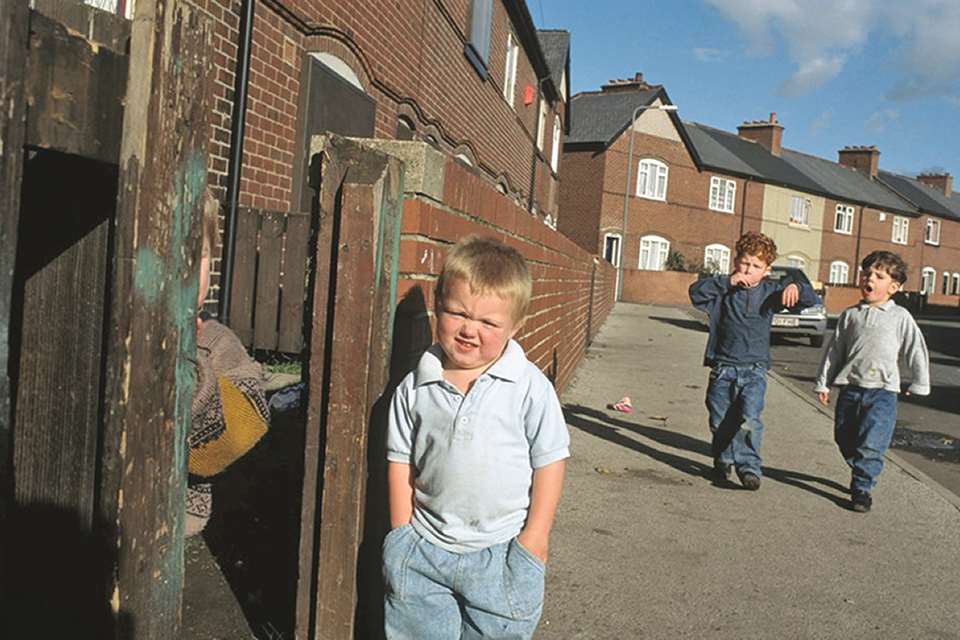Government scraps Child Poverty Act
Thursday, July 2, 2015
The existing measures and targets in the Child Poverty Act will be replaced with a new duty to report on worklessness and educational attainment.

Speaking in Parliament yesterday, the work and pensions secretary Iain Duncan Smith announced the introduction of a ‘new’ and ‘strengthened’ approach to measuring child poverty.
Mr Duncan Smith, who launched a consultation to consider ways in which to widen the measure of child poverty in 2012, believes the current income method of measuring child poverty is too simplistic and a poor test of whether children’s lives are genuinely improving.
Currently, a child is considered to be living in poverty if their household income is less than 60 per cent of the average (median) UK income.
In place of the Child Poverty Act 2010, the Government will be legally bound to report on the proportion of children living in workless household, long-term workless households and the educational attainment of all pupils and the most disadvantaged pupils at age 16.
A range of other measures and indicators of root causes of poverty will also be developed by the Government, including family breakdown, debt and addiction, details of which will be set out in a ‘children’s life chances strategy'.
Mr Duncan Smith said, ‘Eradicating child poverty is an absolute priority for this Government, and I have consistently argued that it is not enough to tackle the symptoms without also tackling the underlying causes.
‘The measures announced today are the foundation of a new, comprehensive way of addressing poverty and reflect our conviction that work is the best route out of poverty.
‘Our new approach will drive effective Government action by focusing attention on making meaningful change to children’s life chances.’
The announcement of the new measures comes after Government statistics published last week suggested relative poverty is at its lowest since the mid 1980s.
According to the Department for Work and Pensions, currently 2.3 million children live in relative poverty in the UK. However, Government figures also show that the majority of poor children (64 per cent) live in households where at least one adult is working.
Charities 4Children and the Child Poverty Action Group have spoken out against the Government’s move to introduce a new child poverty measure.
Imelda Redmond, chief executive of 4Children, said, ‘After last week’s news that there are 2.3 million children too many living in poverty in the UK, we should today be hearing about the Government’s immediate action to get that number down.
‘Instead we hear the government’s plans to abandon an internationally recognised measure which will ignore one of the most fundamental factors of child poverty - having too little money to raise your family.
‘It is right to recognise that work should be a route out of poverty, but with two-thirds of children in poverty living in working households that is clearly currently not enough.
‘Instead of abandoning a target to eliminate child poverty which they signed up to - we need to hear this Government’s action plan on how to end it.’
Alison Garnham, chief executive of the Child Poverty Action Group, said, ‘The Government is turning its back on poor children. Only a year ago, the secretary of state claimed the child poverty targets would be met but last week’s child poverty statistics showed that absolute child poverty has risen by half a million since 2010 and that progress on relative poverty has stalled.
‘Today’s statement isn’t about strengthening efforts to end child poverty but about burying the failure of the Government’s child poverty approach. And with more cuts coming down the line, child poverty is set to rise.
‘The Child Poverty Act secured the support of many in the voluntary sector and all the main political parties because it made clear that any effective child poverty strategy has to take a broad approach – it needs to look at jobs and skills, health and education, home and communities as well as direct financial support to families.
‘A child poverty strategy which excludes income isn’t a child poverty strategy.’








